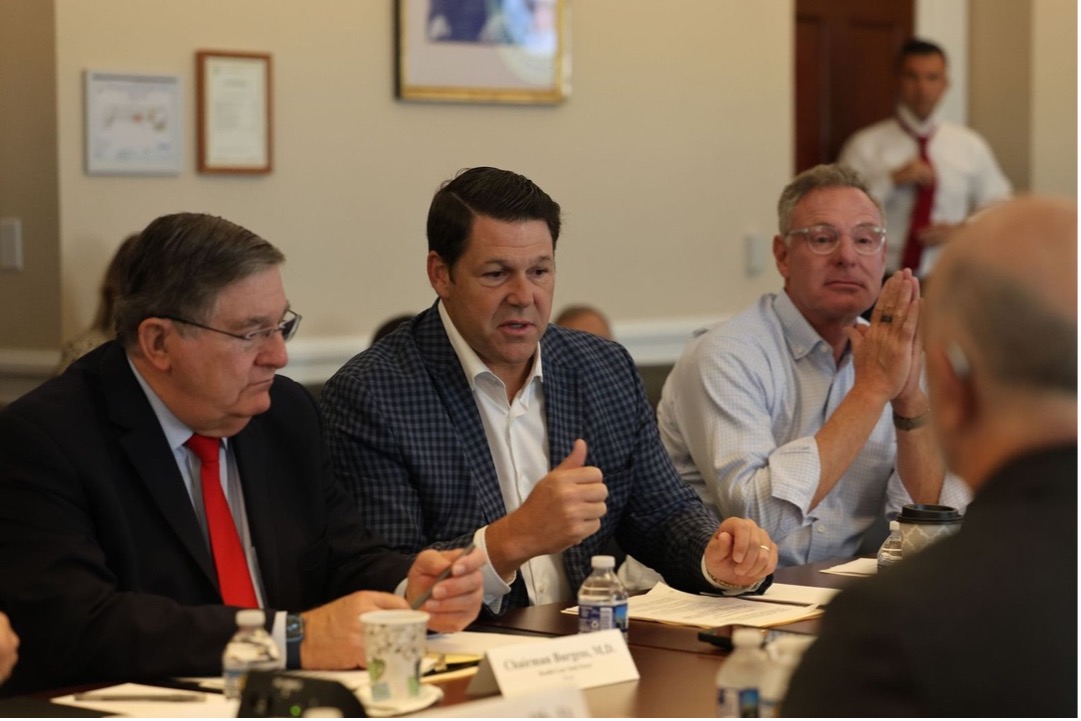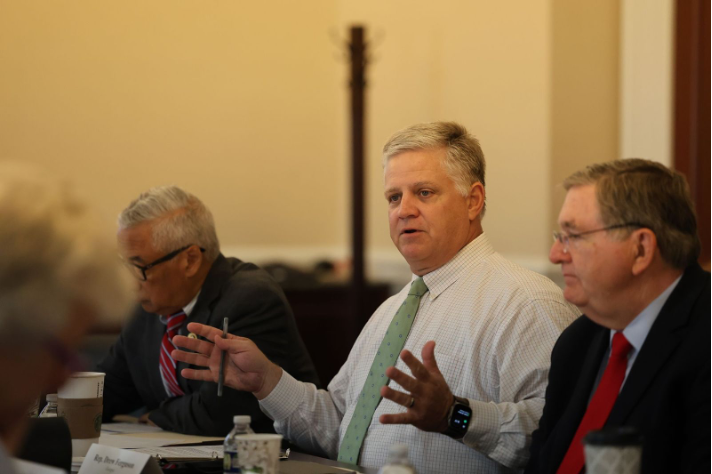House Budget Committee Examines Budgetary Effects of Antimicrobial Resistance and the Broken Antibiotic Development Pipeline
WASHINGTON, D.C. – Today, House Budget Committee Chairman Jodey Arrington (R-TX) and Health Care Task Force (HCTF) Chairman Michael C. Burgess, MD (R-TX) led a bipartisan roundtable entitled, “Threats to Modern Medicine: Examining the Budgetary Effects of Antimicrobial Resistance and the Broken Antibiotic Development Pipeline.” Joining in this effort are Rep. Drew Ferguson (R-GA) and Rep. Scott Peters (D-CA) who introduced H.R. 2940, Pioneering Antimicrobial Subscriptions to End Upsurging Resistance (PASTEUR) Act to encourage innovative antimicrobial drug development.
Committee members heard from industry experts, including:
- Chapin White, Director of the Health Analysis Division at the Congressional Budget Office (CBO);
- Kevin Outterson, Executive Director of Combating Antibiotic-Resistant Bacteria Biopharmaceutical Accelerator (CARB-X);
- Henry Skinner, PhD, Chief Executive Officer of AMR Action Fund; and
- Dr. Trish Perl, MD, UT Southwestern/Infectious Diseases Society of America
Chairman Arrington at the Roundtable:
“We have the best physicians, the best facilities, the best technology, and everybody else has the technology we develop here, but we just can't seem to put it all together. Dr. Burgess is leading the charge to think outside the box, and unleash new ideas for us to examine, leaning on the market forces of innovation, competition, and consumer choice in a way that truly saves lives and creates value for taxpayers. I want to also thank Dr. Ferguson for being the champion on this important issue.”
HCTF Chairman Burgess at the Roundtable:
“We are here tasked with safeguarding public health. That is extremely important to us. That’s why we're so fortunate to have Drew leading the charge on the PASTEUR Act, to try to make some budgetary sense of the way this country handles antibiotics.
I would far rather practice in a time when antimicrobials are available than a time when they were not available. We're here to explore innovative solutions. Our commitment is to collaborate to curb antimicrobial resistance, and protecting future generations in this crucial endeavor.”
Representative Ferguson at the Roundtable:
"We’ve been investing in AMR for a number of years, and there's some great research being done. But then these innovative companies go bankrupt. Now, we have a bipartisan, bicameral bill moving. It's important for America, and it's important for the world. We want to be the ones solving this problem. We don't want our adversaries solving this problem for us.”
Representative Peters at the Roundtable:
“I represent the third largest biotechnology cluster in the country in San Diego. When I talk to companies, I believe in the market as a way to generate solutions for these things. But the market doesn't work here, because the course of treatment is so slow that everyone's getting out of it, you can't induce investment into that risk, with no return. We are trying to figure out a way to make it make sense that people will create new antibiotics. But the other thing I think we're up against is the way we budget. We must be willing to spend some money today to save money later and CBO doesn't always give us that mechanism. The cost is not this year's money. But it's this year's money considering what we get back in future years. That's an institutional problem that we have. We have to deal with this.”
Background:
- Antimicrobials (including antibiotics and antifungals) are medicines used to treat and prevent infections in humans, animals, and plants.
- Antimicrobial resistance (AMR) occurs when bacteria, viruses, fungi, and parasites mutate and no longer respond to these medicines. As a result, treating infections becomes much harder, increasing the risk of disease spread, severe illness, and death.
- Drug-resistant infections generally require more care and longer hospital stays, increasing costs for major federal health programs and increasing risks to patients.
- According to the Centers for Disease Control and Prevention (CDC), AMR results in $20 billion in direct healthcare costs in the United States, in addition to about $35 billion in lost productivity annually.
- The availability of safe and effective antibiotics underpins modern medicine, allowing for successful cancer chemotherapy, transplantation and other surgeries, and care of medically complex patients.
- New antibiotics approved by the FDA are generally reserved for use to prevent bacteria from developing resistance, which prevents companies from seeing a return on investment. Therefore, many large drug companies no longer invest in active antimicrobial drug development programs.

HBC Members pictured from left to right: HCTF Chair Michael Burgess, MD (R-TX), Chairman Jodey Arrington (R-TX), and Rep. Scott Peters (D-CA)

HBC Members pictured from left to right: Rep. Robert Scott (D-VA), Rep. Drew Ferguson (R-GA), and HCTF Chair Michael Burgess, MD (R-TX)
- The increasing rate of antimicrobial resistance, combined with a shrinking pipeline of new antimicrobial drugs in development, threatens advances in modern medicine and our ability to control infections, and will drive up federal health care spending.
- The House Budget Committee is leading the charge to examine new approaches and corresponding budgetary effects on policies that aim to increase stewardship and inject needed incentives for antimicrobial drug development.
More from the House Budget Committee on Health Care:
Read more on the Health Care Task Force Roundtable titled “Paying for 21st Century Cures: Examining the Budgetary Effects of Increasing Patient Access to Cell and Gene Therapies” HERE.
Read more from Health Care Task Force Chairman Burgess on Cell and Gene Therapies HERE.
Read more on the Health Care Task Force Roundtable Examining the Congressional Budget Office Analysis of Policies that Affect New Medicines Reaching Patients HERE.
Read more on the House Budget Committee hearing examining budgetary effects of growing health care consolidation HERE.


